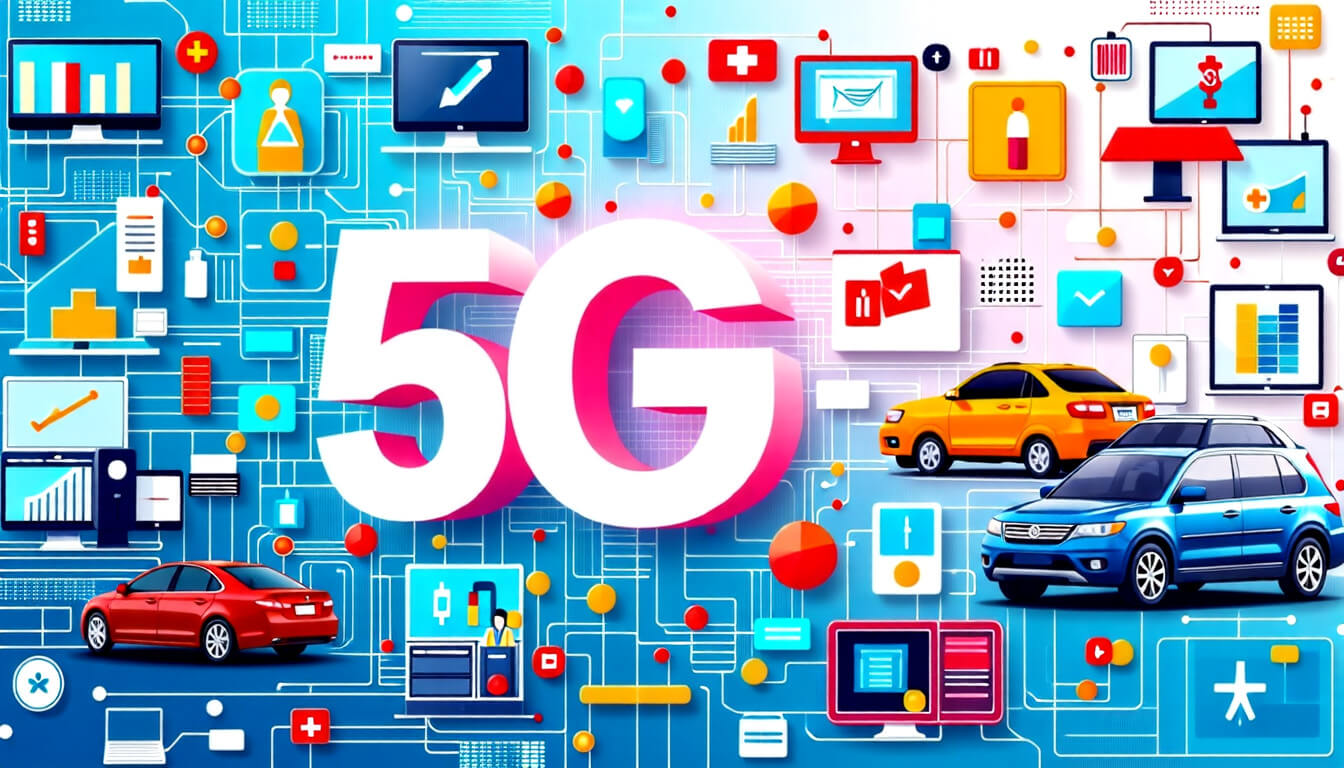Table of contents
In an era where digital technology interweaves seamlessly with daily life, understanding and maintaining mental health has become increasingly complex. Our constant connectivity, while offering unprecedented opportunities for communication and growth, also presents unique challenges to our psychological wellbeing. A groundbreaking study in the Journal of Clinical Psychology reveals that the integration of digital technology into daily life has fundamentally altered how we experience and manage mental health challenges. This comprehensive exploration delves into the multifaceted relationship between digital technology and mental health, examining both the challenges and opportunities that define wellbeing in our connected world.
The Digital Landscape and Mental Health: A Complex Intersection
The digital revolution has fundamentally transformed how we work, socialize, and process information. A comprehensive report from the World Health Organization reveals that the global prevalence of anxiety and depression increased by 25% during the first year of widespread digital transformation in workplace environments. This significant shift has created a new paradigm for mental health professionals and individuals alike, requiring innovative approaches to understanding and maintaining psychological wellbeing.

The above visualization demonstrates the steady increase in digital anxiety prevalence across different demographics, highlighting the growing need for targeted interventions and support strategies.
The Digital Double-Edge: Understanding Technology’s Impact
Digital technology’s influence on mental health manifests through various channels. Research from Stanford University’s Digital Health Initiative has identified several key impact areas that shape our psychological well-being in the digital age.
Social Media and Self-Perception: A groundbreaking study at the University of Pennsylvania’s Department of Psychology has revealed concerning patterns in how social media affects our self-image. Their research demonstrates that excessive social media use correlates with increased feelings of loneliness and decreased self-worth. The constant exposure to curated versions of others’ lives creates an environment where comparison becomes inevitable and often detrimental to self-esteem.
Information Overload and Cognitive Processing: The MIT Technology Review presents compelling evidence about our changing information consumption patterns. The human brain now processes an average of 34 gigabytes of information daily in the digital age, compared to 2 gigabytes in 1986. This dramatic increase in information consumption has significant implications for cognitive load and mental fatigue.
Digital Workplace Stress: The shift to digital workspaces has introduced new forms of psychological strain. A comprehensive study by the National Institute for Occupational Safety and Health demonstrates that 62% of workers experience increased anxiety due to constant digital connectivity and the blurring of work-life boundaries.
Emerging Patterns in Digital Mental Health
The Rise of Digital Anxiety
Digital anxiety represents a new frontier in mental health challenges. A comprehensive review in the American Journal of Psychiatry has identified several distinct manifestations of this emerging phenomenon, each requiring its own therapeutic approach.
Nomophobia: Research published in the Journal of Mobile Computing and Communications has uncovered a startling trend: the fear of being without a mobile device affects an estimated 71% of young adults. This finding highlights the deep psychological dependence many have developed on their digital devices.
Digital Performance Anxiety: The Harvard Business Review’s analysis of workplace digital stress reveals an emerging crisis in professional environments. Their research shows that 67% of professionals report significant stress related to digital response expectations, creating a new form of social pressure that impacts both productivity and mental well-being.

The framework above illustrates the essential elements required for maintaining digital wellness, emphasizing the interconnected nature of various coping strategies and support mechanisms.
The Impact on Different Demographics
Understanding how digital technology affects various age groups and populations helps us develop targeted interventions and support strategies. The Harvard Digital Psychology Center’s comprehensive study has revealed important patterns in how different demographics respond to digital stress, enabling more effective interventions.
Adolescents and Young Adults: This demographic shows the highest susceptibility to digital-related mental health challenges. A longitudinal study in the Journal of Youth and Adolescence has documented a concerning trend: a 63% increase in anxiety symptoms among teenagers who spend more than six hours daily on digital devices. The developmental stage of adolescence makes this group particularly vulnerable to social comparison and peer influence, amplifying the impact of digital interactions on mental wellbeing.
Working Professionals: The International Journal of Occupational Health’s landmark study reveals a complex paradox in the professional sector. Their research shows that 78% of workers experience simultaneous increases in both productivity and anxiety levels due to digital tools, creating a challenging dynamic for workplace mental health management.
Older Adults: While generally less affected by social media-related anxiety, this group faces unique challenges. The National Institute on Aging’s recent report demonstrates how essential service digitization has created new forms of stress and isolation for older adults, emphasizing the critical need for age-specific digital literacy programs.
Innovative Approaches to Digital Wellbeing
Technical Solutions for Mental Health

The evolution of digital mental health support has created new opportunities for intervention and treatment. The Digital Therapeutics Alliance’s comprehensive assessment of these emerging solutions reveals promising developments in how technology can support psychological wellbeing.
Digital Wellness Applications have shown remarkable promise in addressing mental health challenges. The Journal of Digital Psychiatry’s meta-analysis demonstrates that AI-driven applications achieve a 47% improvement in anxiety management among regular users. These sophisticated platforms utilize machine learning algorithms to adapt to individual needs, creating personalized support systems that evolve with user requirements.
The rise of teletherapy has dramatically transformed access to mental health support. A groundbreaking study in the Journal of Telemedicine and e-Health presents compelling evidence that virtual therapy sessions can achieve outcomes comparable to traditional in-person treatment, particularly for anxiety and mild to moderate depression. This finding has profound implications for expanding mental health care accessibility.
Research from the Cambridge Digital Wellness Institute has documented the effectiveness of digital detox tools in managing technology-related stress. Their longitudinal study reveals a 35% reduction in anxiety symptoms among users who implement structured digital boundaries, demonstrating the potential of technology to help manage its own impact on mental health.
Building Digital Resilience
The MIT Media Lab’s pioneering work in digital psychology has identified key components of psychological resilience in the digital age. Their research framework provides a comprehensive approach to building sustainable digital wellness practices.
Mindful Technology Usage emerges as a cornerstone of digital wellbeing. The Stanford Center for Digital Health’s latest findings demonstrate that structured approaches to digital consumption can significantly reduce stress levels. Their research shows that implementing designated tech-free periods, creating physical and temporal boundaries for device usage, and practicing mindful engagement with digital content leads to measurable improvements in mental wellbeing.
The importance of digital literacy in maintaining mental health cannot be overstated. The Yale Digital Psychology Program has documented how understanding the psychological mechanisms behind digital stress enables more effective coping strategies. Their work shows that individuals who develop strong digital literacy skills demonstrate greater resilience to digital overwhelm and maintain healthier online boundaries.
Community support plays a crucial role in digital wellbeing. The Social Science Research Network’s analysis reveals that individuals with strong support networks show significantly better outcomes in managing digital stress. These networks provide essential emotional support, shared experiences, and accountability for maintaining healthy digital habits.
Future Directions and Recommendations
Emerging Trends in Digital Mental Health
The landscape of digital mental health continues to evolve rapidly. The Future of Digital Health Initiative’s comprehensive report identifies several promising developments that are reshaping our approach to mental wellbeing in the digital age.
Artificial Intelligence in mental health support represents a particularly promising frontier. The Nature Digital Health journal has published groundbreaking research demonstrating AI’s potential in early intervention and crisis prevention. Their findings show that AI-driven systems can identify patterns of declining mental health with remarkable accuracy, enabling proactive intervention before crises develop.
The integration of physical and digital wellbeing marks another significant advancement. The International Journal of Integrated Healthcare presents compelling evidence that holistic approaches combining digital wellness with physical health monitoring achieve superior outcomes in managing anxiety and stress. Their research demonstrates how biometric feedback systems, activity-aware digital interventions, and sleep-technology integration create a more comprehensive approach to mental health support.
Conclusion: Navigating the Digital Future
As we look to the future of mental health in the digital age, the evidence presents both challenges and opportunities. The World Economic Forum’s Global Risk Report identifies digital mental health as one of the defining challenges of our era, yet also highlights unprecedented opportunities for innovation in mental health support.
The Royal College of Psychiatrists’ position paper on digital mental health emphasizes that success in this domain requires a balanced approach that harnesses technology’s benefits while acknowledging and addressing its potential risks. Their research suggests that the future of mental health support will likely combine traditional therapeutic approaches with innovative digital solutions.
The path forward requires careful consideration of how we integrate technology into our lives. The Global Digital Wellbeing Initiative provides a framework for sustainable digital mental health that emphasizes the importance of evidence-based strategies, ongoing research, and adaptive approaches to emerging challenges.
As we continue to evolve in this connected world, our focus must remain on fostering resilience, maintaining meaningful human connections, and developing sustainable approaches to digital wellbeing. The future of mental health in the digital age will depend on our ability to create and maintain this delicate balance, ensuring that technology serves as a tool for enhancement rather than a source of detriment to our psychological wellbeing.










